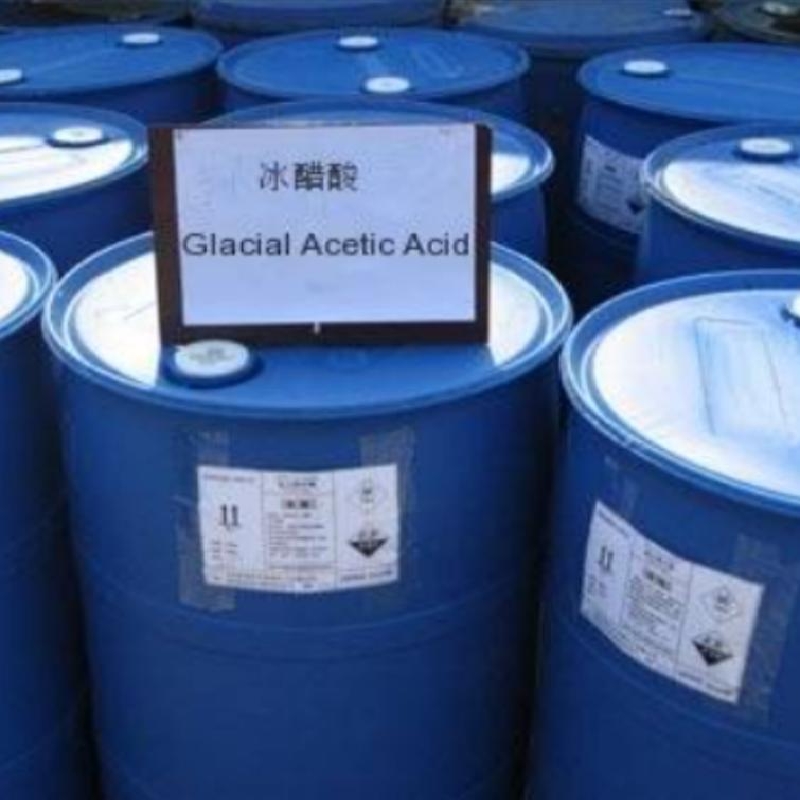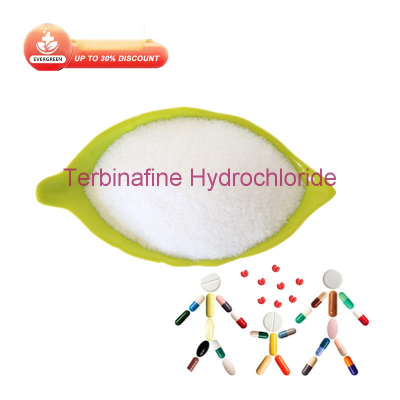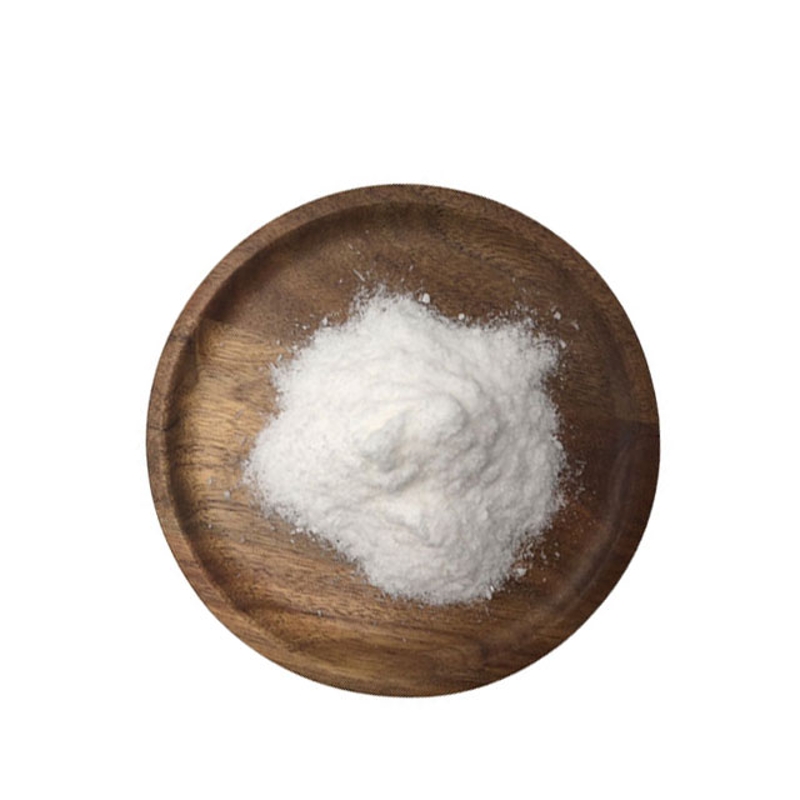-
Categories
-
Pharmaceutical Intermediates
-
Active Pharmaceutical Ingredients
-
Food Additives
- Industrial Coatings
- Agrochemicals
- Dyes and Pigments
- Surfactant
- Flavors and Fragrances
- Chemical Reagents
- Catalyst and Auxiliary
- Natural Products
- Inorganic Chemistry
-
Organic Chemistry
-
Biochemical Engineering
- Analytical Chemistry
- Cosmetic Ingredient
-
Pharmaceutical Intermediates
Promotion
ECHEMI Mall
Wholesale
Weekly Price
Exhibition
News
-
Trade Service
Introduction: According to the US CNBC report, Eli Lilly’s combination of antibody drugs has produced more positive results in the treatment of Covid-19 in phase 3 clinical trials.
On March 10, Eli Lilly issued a press release stating that its new crown combination antibody drug has produced more positive results in the treatment of Covid-19 in a phase 3 clinical trial.
In a study of more than 750 high-risk patients, it was found that the therapeutic agent can reduce the risk of hospitalization and death by 87%.
The latest research found that lower doses can produce better results.
In February, the combination drug received emergency use authorization from the US FDA.
This is a new data from a randomized, double-blind, placebo-controlled phase 3 study of BLAZE-1, demonstrating that 700 mg of bamlanivimab (LY-CoV555) and 1400 mg of etesevimab (LY-CoV016) were recently diagnosed as Among high-risk patients with COVID-19, hospitalizations and deaths ("events") related to COVID-19 can be significantly reduced.
These results provide additional efficacy and safety data that support the emergency use authorization recently granted by the US FDA and the use of positive scientific opinion (CHMP) of the European Medicines Agency's (EMA) Committee on Human Medications.
This new phase 3 cohort of BLAZE-1 includes 769 high-risk patients with mild to moderate COVID-19 who are 12 years and older (treatment: n = 511; placebo: n = 258).
Patients taking Bamlanivimab and etesevimab had 4 events, while patients taking placebo had 15 events, which meant a 87% risk reduction (p <0.
0001).Together, Bamlanivimab and etesevimab also showed statistically significant improvements in key secondary endpoints.
These results are consistent with the results seen from other data sets of BLAZE-1: in the previous stage 3 cohort, bamlanivimab 2800 mg and etesevimab 2800 mg reduced the risk of hospitalization and death by 70%, in the stage 2 cohort , Only bamlanivimab reduces the risk of hospitalization and emergency visits by approximately 70%.
The reduction in viral load is also consistent with what was previously observed in the third phase of the study cohort.
In this new phase 3 study cohort, there were a total of 4 deaths.
All deaths were considered to be related to COVID-19, and all deaths occurred in patients taking placebo.
There was no death in patients who received bamlanivimab and etesevimab in combination.
So far, in the two phase three study cohorts of the study, none of the patients who received bamlanivimab and etesevimab died, and there were 14 deaths among patients who received placebo, 13 of which are considered to be related to COVID-19.
In this dataset, the safety characteristics of bamlanivimab and etesevimab are consistent with the observations of other phase 1, phase 2, and phase 3 trials evaluating these antibodies.
Daniel Skovronsky, Chief Scientific Officer of Eli Lilly and President of Eli Lilly Research Laboratories, said, "These positive results reinforce our previous findings and support the authorized doses of 700 mg of sambanibizumab and 1400 mg of etiximab.
These convincing data-in addition to the FDA's recent EUA, the EMA's CHMP decision, and the treatment recommendations of the National Institute of the U.
S.
National Research Institute's "Covid-19 Treatment Guidelines"-provide healthcare providers with more information about the combined use of bamlanivimab and etesevimab.
Information on potentially life-saving treatments to help those who are most likely to develop severe complications from severe COVID-19. Even in the months after the emergence of the new COVID-19 variant strain, the consistent results observed in multiple cohorts of the trial showed that the combination of bamlanivimab and etesevimab can still resist multiple mutations, especially those that are popular in the United States.
.
Eli Lilly will sell bamlanivimab and etesevimab worldwide.
In the context of the pandemic, in the United States and the European Union, Bamlanivimab alone and bamlanivimab in combination with etiximab are authorized in special/emergency situations.
In addition, bamlanivimab alone is approved for emergency use in Canada, Panama, Kuwait, UAE, Israel, Rwanda, Morocco and many other countries.
Limitations of the benefits and potential risks of severe COVID-19 patients.
For patients hospitalized due to COVID-19, there is no study on the use of bamlanivimab and etesevimab for co-treatment.
Due to COVID-19, the therapeutic benefit of bamlanivimab alone has not been observed in hospitalized patients.
When high-flow oxygen or mechanical ventilation is required for hospitalized COVID-19 patients, monoclonal antibodies (such as bamlanivimab and etesevimab) may cause poor clinical results.
According to the Phase 2 data of BLAZE-1, nausea was the most common adverse event.
In the bamlanivimab and etesevimab and placebo groups, 4% of subjects reported nausea.
Compared with placebo (1% and 0%, respectively), subjects treated with bamlanivimab and etesevimab (2% and 1%, respectively) experienced more frequent itching and fever.
According to the Phase 3 data of BLAZE-1, the most common adverse events were nausea, dizziness and rash.
These events each occurred in 1% of subjects receiving co-treatment with bamlanivimab and etesevimab, and 1% of placebo subjects.
With bamlanivimab alone, at least 1% of BLAZE-1 clinical trial participants reported adverse reactions when using 700 mg bamlanizumab alone or placebo as nausea (3% vs.
4%), diarrhea (1% vs.
5%), dizziness (3% vs.
2%), headache (3% vs.
2%), itching (2% vs.
1%) and vomiting (1% vs.
3%).
For use in specific populations, there are insufficient data on the co-administration of bamlanivimab and etesevimab and bamlanivimab alone during pregnancy.
Bamlanivimab and etesevimab should be used together and bamlanivimab alone during pregnancy only if the potential benefits outweigh the potential risks to the mother and fetus.
Regarding lactation, there are currently no available data on the effects of bamlanivimab and etesevimab in human or animal milk on breastfed infants or on milk production.
Individuals breastfeeding COVID-19 should follow clinical guidelines to avoid exposing their babies to COVID-19.
Bamlanivimab is a recombinant neutralizing human IgG1 monoclonal antibody (mAb) against SARS-CoV-2 spike protein.
It aims to prevent the virus from attaching and entering human cells, thereby neutralizing the virus, thereby potentially treating COVID-19.
Bamlanivimab is derived from a collaboration between Lilly and AbCellera to develop antibody therapies for the prevention and treatment of COVID-19.
Eli Lilly’s scientists quickly developed the antibody in less than three months at AbCellera and at the National Institute of Allergy and Infectious Diseases (NIAID) Vaccine Research Center.
It was identified in blood samples taken from one of the first American patients with COVID-19.
Eli Lilly has successfully completed the Phase 1 study (NCT04411628) of bamlanivimab in hospitalized COVID-19 patients.
A Phase 2/3 study of people who have recently been diagnosed with COVID-19 in an ambulatory setting (BLAZE-1, NCT04427501) is ongoing.
A phase 3 study of bamlanivimab or bamlanivimab and etesevimab is also being conducted separately among residents and staff of long-term care institutions (BLAZE-2, NCT04497987).
In addition, in the ACTIV-2 study led by NIH in the United States, the bamlanivimab test is being performed on out-of-hospital COVID-19 patients.
Etesevimab (LY-CoV016, also known as JS016) is a recombinant fully human monoclonal neutralizing antibody that specifically binds to the S protein receptor binding domain on the surface of SARS-CoV-2 with high affinity and can block the virus Binding of ACE2 to host cell surface receptors.
Point mutations were introduced into natural human IgG1 antibodies to reduce effector functions.
Etesevimab was jointly developed by Junshi Biology and the Institute of Microbiology of the Chinese Academy of Sciences (IMCAS).
Eli Lilly obtained Etesevimab from Junshi Biology outside of Greater China.
Lilly has successfully completed the Phase 1 study (NCT04441931) of Etesevimab in healthy American volunteers to evaluate its safety, tolerability, pharmacokinetics and immunogenicity.
A Phase 2/3 study of people who have recently been diagnosed with COVID-19 in an ambulatory setting (BLAZE-1, NCT04427501) is ongoing.
Junshi Bio has completed a similar phase 1 study in healthy volunteers in China, and has started a phase 1b/2 trial on COVID-19 patients worldwide.
For more information, please click to read the original text to download the Metz Medical APP~
On March 10, Eli Lilly issued a press release stating that its new crown combination antibody drug has produced more positive results in the treatment of Covid-19 in a phase 3 clinical trial.
In a study of more than 750 high-risk patients, it was found that the therapeutic agent can reduce the risk of hospitalization and death by 87%.
The latest research found that lower doses can produce better results.
In February, the combination drug received emergency use authorization from the US FDA.
This is a new data from a randomized, double-blind, placebo-controlled phase 3 study of BLAZE-1, demonstrating that 700 mg of bamlanivimab (LY-CoV555) and 1400 mg of etesevimab (LY-CoV016) were recently diagnosed as Among high-risk patients with COVID-19, hospitalizations and deaths ("events") related to COVID-19 can be significantly reduced.
These results provide additional efficacy and safety data that support the emergency use authorization recently granted by the US FDA and the use of positive scientific opinion (CHMP) of the European Medicines Agency's (EMA) Committee on Human Medications.
This new phase 3 cohort of BLAZE-1 includes 769 high-risk patients with mild to moderate COVID-19 who are 12 years and older (treatment: n = 511; placebo: n = 258).
Patients taking Bamlanivimab and etesevimab had 4 events, while patients taking placebo had 15 events, which meant a 87% risk reduction (p <0.
0001).Together, Bamlanivimab and etesevimab also showed statistically significant improvements in key secondary endpoints.
These results are consistent with the results seen from other data sets of BLAZE-1: in the previous stage 3 cohort, bamlanivimab 2800 mg and etesevimab 2800 mg reduced the risk of hospitalization and death by 70%, in the stage 2 cohort , Only bamlanivimab reduces the risk of hospitalization and emergency visits by approximately 70%.
The reduction in viral load is also consistent with what was previously observed in the third phase of the study cohort.
In this new phase 3 study cohort, there were a total of 4 deaths.
All deaths were considered to be related to COVID-19, and all deaths occurred in patients taking placebo.
There was no death in patients who received bamlanivimab and etesevimab in combination.
So far, in the two phase three study cohorts of the study, none of the patients who received bamlanivimab and etesevimab died, and there were 14 deaths among patients who received placebo, 13 of which are considered to be related to COVID-19.
In this dataset, the safety characteristics of bamlanivimab and etesevimab are consistent with the observations of other phase 1, phase 2, and phase 3 trials evaluating these antibodies.
Daniel Skovronsky, Chief Scientific Officer of Eli Lilly and President of Eli Lilly Research Laboratories, said, "These positive results reinforce our previous findings and support the authorized doses of 700 mg of sambanibizumab and 1400 mg of etiximab.
These convincing data-in addition to the FDA's recent EUA, the EMA's CHMP decision, and the treatment recommendations of the National Institute of the U.
S.
National Research Institute's "Covid-19 Treatment Guidelines"-provide healthcare providers with more information about the combined use of bamlanivimab and etesevimab.
Information on potentially life-saving treatments to help those who are most likely to develop severe complications from severe COVID-19. Even in the months after the emergence of the new COVID-19 variant strain, the consistent results observed in multiple cohorts of the trial showed that the combination of bamlanivimab and etesevimab can still resist multiple mutations, especially those that are popular in the United States.
.
Eli Lilly will sell bamlanivimab and etesevimab worldwide.
In the context of the pandemic, in the United States and the European Union, Bamlanivimab alone and bamlanivimab in combination with etiximab are authorized in special/emergency situations.
In addition, bamlanivimab alone is approved for emergency use in Canada, Panama, Kuwait, UAE, Israel, Rwanda, Morocco and many other countries.
Limitations of the benefits and potential risks of severe COVID-19 patients.
For patients hospitalized due to COVID-19, there is no study on the use of bamlanivimab and etesevimab for co-treatment.
Due to COVID-19, the therapeutic benefit of bamlanivimab alone has not been observed in hospitalized patients.
When high-flow oxygen or mechanical ventilation is required for hospitalized COVID-19 patients, monoclonal antibodies (such as bamlanivimab and etesevimab) may cause poor clinical results.
According to the Phase 2 data of BLAZE-1, nausea was the most common adverse event.
In the bamlanivimab and etesevimab and placebo groups, 4% of subjects reported nausea.
Compared with placebo (1% and 0%, respectively), subjects treated with bamlanivimab and etesevimab (2% and 1%, respectively) experienced more frequent itching and fever.
According to the Phase 3 data of BLAZE-1, the most common adverse events were nausea, dizziness and rash.
These events each occurred in 1% of subjects receiving co-treatment with bamlanivimab and etesevimab, and 1% of placebo subjects.
With bamlanivimab alone, at least 1% of BLAZE-1 clinical trial participants reported adverse reactions when using 700 mg bamlanizumab alone or placebo as nausea (3% vs.
4%), diarrhea (1% vs.
5%), dizziness (3% vs.
2%), headache (3% vs.
2%), itching (2% vs.
1%) and vomiting (1% vs.
3%).
For use in specific populations, there are insufficient data on the co-administration of bamlanivimab and etesevimab and bamlanivimab alone during pregnancy.
Bamlanivimab and etesevimab should be used together and bamlanivimab alone during pregnancy only if the potential benefits outweigh the potential risks to the mother and fetus.
Regarding lactation, there are currently no available data on the effects of bamlanivimab and etesevimab in human or animal milk on breastfed infants or on milk production.
Individuals breastfeeding COVID-19 should follow clinical guidelines to avoid exposing their babies to COVID-19.
Bamlanivimab is a recombinant neutralizing human IgG1 monoclonal antibody (mAb) against SARS-CoV-2 spike protein.
It aims to prevent the virus from attaching and entering human cells, thereby neutralizing the virus, thereby potentially treating COVID-19.
Bamlanivimab is derived from a collaboration between Lilly and AbCellera to develop antibody therapies for the prevention and treatment of COVID-19.
Eli Lilly’s scientists quickly developed the antibody in less than three months at AbCellera and at the National Institute of Allergy and Infectious Diseases (NIAID) Vaccine Research Center.
It was identified in blood samples taken from one of the first American patients with COVID-19.
Eli Lilly has successfully completed the Phase 1 study (NCT04411628) of bamlanivimab in hospitalized COVID-19 patients.
A Phase 2/3 study of people who have recently been diagnosed with COVID-19 in an ambulatory setting (BLAZE-1, NCT04427501) is ongoing.
A phase 3 study of bamlanivimab or bamlanivimab and etesevimab is also being conducted separately among residents and staff of long-term care institutions (BLAZE-2, NCT04497987).
In addition, in the ACTIV-2 study led by NIH in the United States, the bamlanivimab test is being performed on out-of-hospital COVID-19 patients.
Etesevimab (LY-CoV016, also known as JS016) is a recombinant fully human monoclonal neutralizing antibody that specifically binds to the S protein receptor binding domain on the surface of SARS-CoV-2 with high affinity and can block the virus Binding of ACE2 to host cell surface receptors.
Point mutations were introduced into natural human IgG1 antibodies to reduce effector functions.
Etesevimab was jointly developed by Junshi Biology and the Institute of Microbiology of the Chinese Academy of Sciences (IMCAS).
Eli Lilly obtained Etesevimab from Junshi Biology outside of Greater China.
Lilly has successfully completed the Phase 1 study (NCT04441931) of Etesevimab in healthy American volunteers to evaluate its safety, tolerability, pharmacokinetics and immunogenicity.
A Phase 2/3 study of people who have recently been diagnosed with COVID-19 in an ambulatory setting (BLAZE-1, NCT04427501) is ongoing.
Junshi Bio has completed a similar phase 1 study in healthy volunteers in China, and has started a phase 1b/2 trial on COVID-19 patients worldwide.
For more information, please click to read the original text to download the Metz Medical APP~







